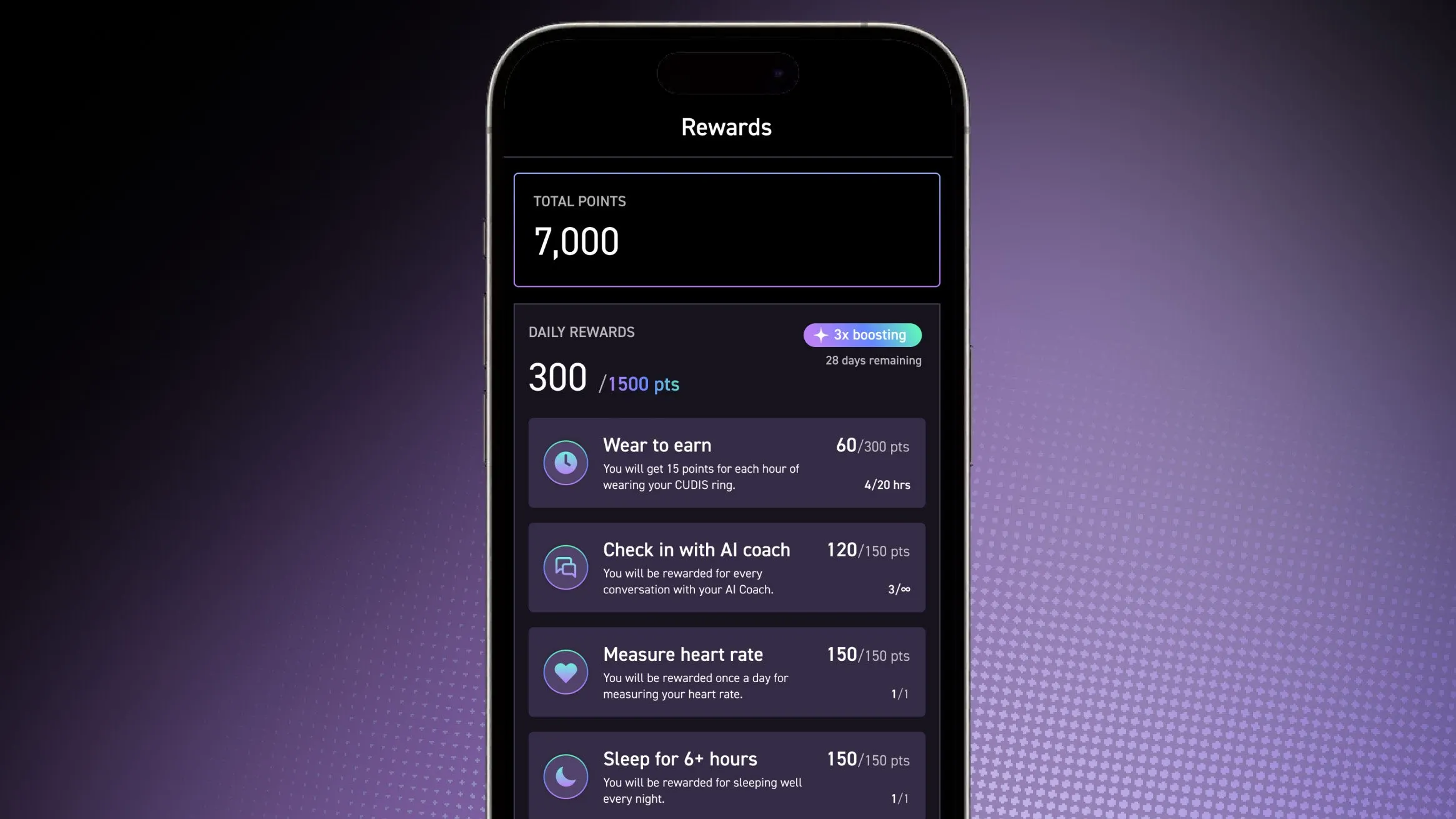
A new smart ring is hitting the market that leverages artificial intelligence (AI) and a crypto earning feature as it guns for industry leader Oura.
Smart rings pack wearable tech into a factor even smaller than smart watches to measure your heart rate, count your steps, track your sleep, and other key metrics. Oura dominates the space with a 62% market share, according to Maia Research.
Cudis hopes it has a worthy rival in its Genesis smart ring, adding an AI-powered coach that will give you personalized health and wellness advice as well as offer a rewards program tied to a future token airdrop on the Solana blockchain.
The first round of pre-orders for Genesis took place May 1, with 1,500 rings sold and being shipped to customers this week. A second round of pre-orders has started with 8,500 rings available.
Many of the features of the Cudis Genesis ring are common across wearables: tracking heart rates, steps, sleep, strain, stress, and recovery, as well as menstruation cycles. The Oura ring and other smart devices like the Apple Watch cover this territory well.
The Oura ring also pushes its users to improve their health through statistics and score systems—for example, waking up to a low sleep score might encourage you to go to bed earlier. One reviewer described Oura recommendations as “basic,” albeit useful to most users.
This is where Cudis is attempting to innovate.
The company says Genesis smart ring recommendations will use GPT-4o from OpenAI along with other, unspecified AI models—and tap specialized knowledge they gather from fitness “talents” they bring on board. After choosing your AI coach from a variety of personality types, you’ll be able to chat with them in natural language about your fitness journey.
Cudis claims that Genesis users will receive concise, personable answers that relate to the data that you let the AI model access, providing a much more specialized path to better health.
In terms of AI-generated advice, a similar offering can be found in the Ultrahuman Ring Air, which also uses ChatGPT. According to a TechCrunch reviewer, however, this advice is often “very generic.”
Much like other hardware AI products that have hit the market, like the Rabbit R1 and Humane pin, the ultimate success of the Cudis smart ring may hinge on the performance of its AI model. But Cudis says its network of experts will also ensure its smart ring recommendations are unique.
Cudis founder Edison Chen told Decrypt that your AI coach will understand when you are reaching a higher level of wellness and give you more advanced tips, including “authorized super supplements” that may benefit the user.

Meanwhile, the company also plans to incentivize its users with a “use-to-earn” rewards program. Cudis users will be able to earn points by wearing the ring, manually testing their heart rate, and using the app, with more ways to earn points “coming soon.”
These in-app points will accumulate, and a Solana token planned for launch in the fourth quarter of this year will allow users to convert them into cryptocurrency, Cudis said.
“Many platforms are tracking and using users’ health data but never giving rewards back to users—we believe this is not right, and people should have the right to own their own data, use and monetize their data,” the company explained. “By building Cudis’ smart ring, we allow people to track their health data on a daily basis, assist them in monetization and sharing data with others with users’ permission, and return the benefits to users.”
The second round of pre-orders opened this week, with the Genesis smart ring selling for 1.5 Solana (about $220). The device can only be purchased with cryptocurrency right now, but the company said a fiat payment option is coming. When the Cudis smart ring is broadly available, its retail price will be $349.
Edited by Ryan Ozawa.
Generally Intelligent Newsletter
A weekly AI journey narrated by Gen, a generative AI model.






Be the first to comment